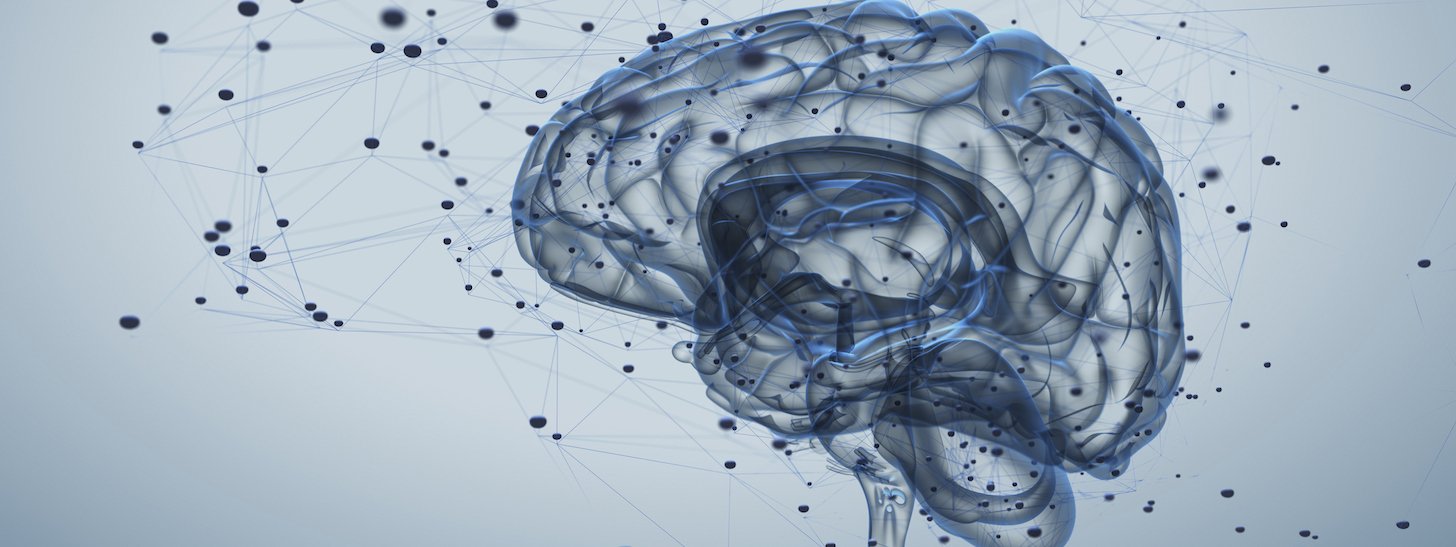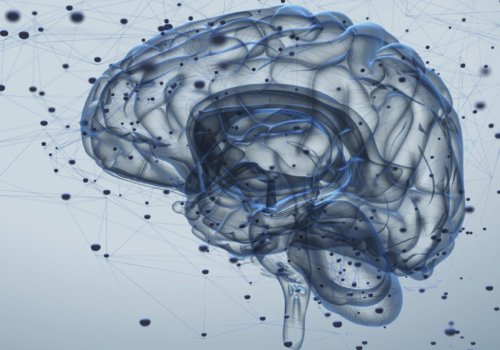New Data on Efficacy of Mindfulness-Based Interventions in Migraine to be Shared at AHS 61st Annual Scientific Meeting
AHS POV: “We know migraine has an impact on everyday life beyond the pain associated with migraine itself. People with migraine often hold back from attending social functions and traveling when the onset of migraine is beginning, or feel frustrated, angry and isolated. These study results can help healthcare providers and patients as they evaluate additional, non-traditional treatment options for migraine,” said American Headache Society President Kathleen Digre.
At the American Headache Society (AHS) 61st Annual Scientific Meeting, researchers are presenting data looking at the impact of mindfulness-based cognitive therapy (MBCT) on migraine-related disability. Mindfulness-based interventions have been shown to reduce disability in other high burden disorders such as chronic musculoskeletal pain. In this pilot study, researchers specializing in the management of painful conditions through modifying behaviors, thoughts and lifestyle, evaluated mindfulness strategies tailored to migraine.
This study showed that people with migraine who received MBCT tailored for migraine (MBCT-M) had statistically significant reductions in headache-related disability compared to those who did not use MBCT. The study, “Does Mindfulness-Based Cognitive Therapy for Migraine Reduce Migraine-Related Disabilty? Results from a Phase 2b Pilot Randomized Clinical Trial” is being recognized as the winner of the Early Career Award by the AHS.
“It is well known that behavioral and lifestyle factors ranging from sleep to one’s daily schedule and stress level can have a negative impact on one’s health, and that mindfulness therapies can improve some of these factors,” said Elizabeth Seng, PhD, Associate Professor, Ferkauf Graduate School of Psychology, Yeshiva University and Research Associate Professor, Department of Neurology, Albert Einstein College of Medicine. “When we tailored mindfulness-based cognitive therapy to migraine, we saw a positive impact on patients’ perceived social and emotional difficulties, adding to the total standard of care when treating migraine.”
The randomized, phase 2B pilot clinical trial recruited 60 participants in the New York City area. Participants were randomized to receive either 8 weekly, individual seventy-five minute MBCT-M sessions or 8 weeks of treatment as usual. After 4 months, those who received MBCT-M had significant reductions in headache-related disability compared to those in the treatment as usual arm.
About the Early Career Lecture Award
The Early Career Lecture Award is designated by the American Headache Society as the best paper on headache, head or face pain, or the nature of pain itself written by an early career author. The recipient must be within 10 years of completing his or her medical residency or terminal research degree. The early career author who receives this award will present the paper as a special lecture during the 61st Annual Scientific Meeting.
About Migraine
Migraine is a disabling neurological disease that affects more than 37 million women, men, and children in the United States. Migraine impacts one in four households, one in five women, one in sixteen men and one in eleven children in the United States. Globally, migraine affects one billion people. In fact, the World Health Organization recognizes migraine as one of the top ten most disabling diseases in the world. Living with migraine is disabling and tends to impact individuals in their most prime years of life. The debilitating nature of migraine is mostly caused by its symptoms, which can vary from person to person and from one migraine attack to another. Migraine attacks may include symptoms like nausea, sensitivity to light, sensitivity to odors, skin sensitivity, fatigue, mood change, dizziness, difficulty concentrating, changes in speech, neck pain and changes in vision (aura) that may include seeing spots, stars, lines, flashing lights, and zigzag lines. Unlike other chronic illnesses, migraine does not have a test that will lead to a diagnosis. Alongside the many physicians and advanced practice providers, patient advocates and patient advocacy organizations are working each day to ensure those living with migraine have an accurate diagnosis, proper treatment plans, and are driving awareness to ensure research is appropriately focused on finding targeted therapies. The goals of the physicians, advanced practice providers and patient advocates supporting those living with migraine are to ensure that no person living with migraine is alone and that they have access to accurate information and credible resources.
About the American Headache Society
The American Headache Society (AHS) is a professional society of healthcare providers dedicated to the study and treatment of headache and face pain. The Society’s objectives are to promote the exchange of information and ideas concerning the causes and treatments of headache and related painful disorders. Educating physicians, health professionals and the public and encouraging scientific research are the primary functions of this organization. AHS activities include an annual scientific meeting, a comprehensive headache symposium, regional symposia for neurologists and family practice physicians, and publication of the journal Headache. More information can be found at www.americanheadachesociety.org. In 2010 AHS founded the American Migraine Foundation (AMF) to provide access to information and resources for individuals living with migraine, as well as their loved ones. AMF is dedicated to the advancement of research and awareness surrounding migraine, with a mission to mobilize a community for patient support and advocacy, as well as drive and support impactful research that translates into treatment advances for patients with migraine and other disabling diseases that cause severe head pain. Patients can learn more, find help and get connected by visiting www.americanmigrainefoundation.org.
CONTACT: Alyssa Bleiberg, Alyssa.Bleiberg@SyneosHealth.com, +1 212 845 5628 and +1 973 432 7289
Disclaimer
The American Headache Society (AHS) is a professional society of health care providers dedicated to the study and treatment of headache and face pain. The American Migraine Foundation, founded by the AHS in 2010, provides access to information and resources for individuals living with migraine, as well as their loved ones. AMF is dedicated to the advancement of research and awareness surrounding migraine, with a mission to mobilize a community for patient support and advocacy, as well as drive and support impactful research that translates into treatment advances for patients with migraine and other disabling diseases that cause severe head pain.
We intend to offer factual, up-to-date news and information, answers to questions on relevant subjects, and informed opinion. The information is not and should not be regarded as a complete analysis of these subjects. The reader should consult physicians or other medical professionals prior to making any diagnostic, treatment, or other health care decisions. In no case should someone make any changes to current therapy based on the information presented on the AHS or AMF site or any other web site without first consulting with a physician or other qualified health care provider.
Health professionals reading the provided information should consult primary sources and the official, complete prescribing information before making any treatment decisions, including the use of any drug or treatment referred to on this site.
In its information, AHS and AMF may offer news, reports, or other information concerning drugs, dosages, indications, usages, biological compounds or agents, devices, or treatments that are not now approved for use in the United States or elsewhere and may never be approved. AHS and AMF do not advocate or recommend adopting any treatment modality based solely on any of the information provided. Again, it is the responsibility of the reader to consult with qualified health professionals before making any diagnostic, treatment, or other health care decisions. Similarly, it is the responsibility of any health care professional to refer to the full prescribing information before making any treatment decisions regarding their patients.
No party associated in any way with this site or its contents assumes liability for any injury, loss, or damage resulting from the use or misuse of any information contained herein or for any errors or omissions. AHS, AMF, any sponsor, provider of content, or referenced source cannot be held responsible for the validity of the information contained herein, nor for the use or misuse of information or for any adverse effects that may result from use of any information or materials presented herein; nor for any direct or consequential damages.
AHS and AMF do not offer medical advice. Readers should seek medical advice from a licensed physician or other qualified health care professional and not rely on information they may gather from secondary sources such as the internet.
Privacy Policy
The American Headache Society respects the privacy of patients and visitors who use our website. Any information that an individual submits on a voluntary basis will be used for the sole purpose for which it is submitted.


